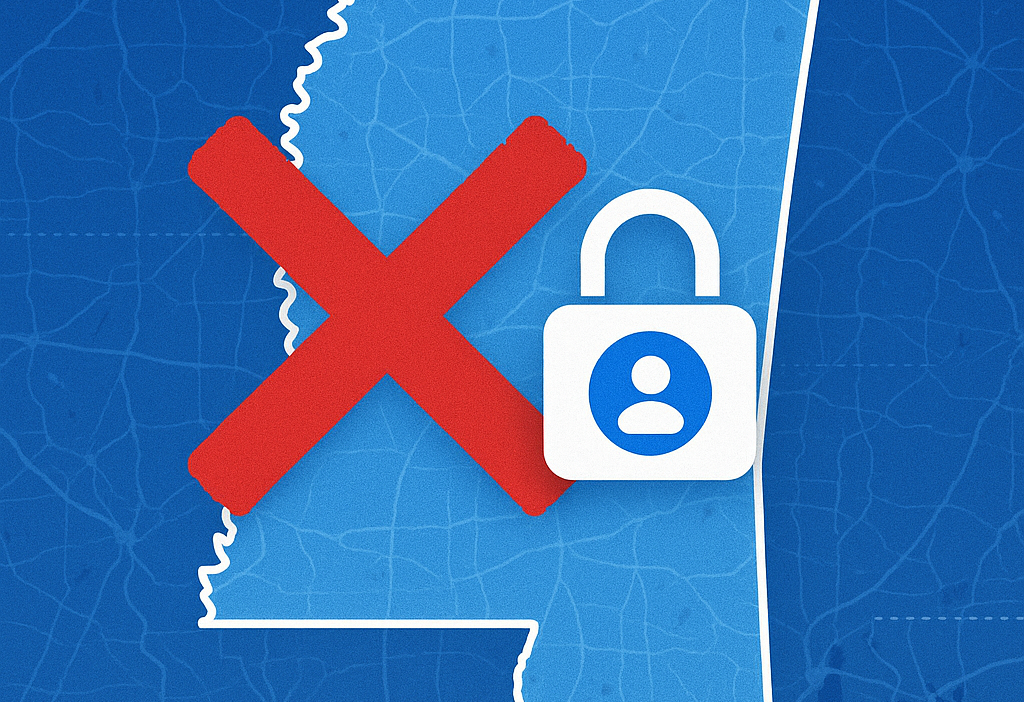Bluesky, a decentralized social networking platform, has suspended its services in Mississippi due to a new state law mandating stringent age verification for all users. This decision, announced in August 2025, stems from the platform’s concerns over privacy, free speech, and the resource-intensive compliance requirements imposed by Mississippi’s HB 1126. This article explores the reasons behind Bluesky’s suspension, the implications of the law, and its broader impact on social media platforms and users.
Understanding Mississippi’s Age Verification Law
What is HB 1126?
Mississippi’s HB 1126, enacted in 2025, requires social media platforms to verify the age of all users before granting access to their services. For users under 18, platforms must obtain parental consent and implement strategies to shield minors from harmful content, such as online bullying, sexual exploitation, or material encouraging substance abuse. Non-compliance carries hefty fines of up to $10,000 per violation, posing a significant financial risk for platforms like Bluesky.
The Supreme Court’s Role
The U.S. Supreme Court’s recent decision not to block HB 1126 allowed the law to take effect, prompting Bluesky’s response. While the law is under review by the 5th U.S. Court of Appeals in New Orleans, Bluesky has opted to block all Mississippi IP addresses to avoid potential penalties while legal challenges are resolved. This move highlights the tension between state regulations and digital platforms’ operational capabilities.
Why Bluesky Suspended Service in Mississippi
Privacy and Free Speech Concerns
Bluesky has voiced significant concerns about the law’s broad scope, which requires collecting sensitive personal information from all users, not just those accessing age-restricted content. The platform argues that this mandate compromises user privacy and limits free expression, particularly for adults who must also undergo verification. Unlike the UK’s Online Safety Act, which Bluesky complies with by restricting age checks to specific content, Mississippi’s law demands comprehensive tracking of all users, including identifying minors.
Resource Constraints for Smaller Platforms
As a smaller platform with a lean team, Bluesky lacks the resources to build the extensive infrastructure needed for compliance, such as age verification systems, parental consent workflows, and ongoing monitoring. The company emphasized that these requirements disproportionately burden emerging platforms compared to tech giants like Facebook or X, which have larger teams and budgets. This dynamic, Bluesky argues, stifles innovation and entrenches the dominance of established players.
Decentralized Nature of Bluesky
Bluesky operates on the Authenticated Transfer Protocol (AT Protocol), a decentralized framework that allows different apps to make independent compliance decisions. The suspension applies only to Bluesky’s app, meaning other services on the AT Protocol may choose to handle Mississippi’s law differently. This flexibility underscores the platform’s commitment to decentralized governance, allowing providers to align with their values and capabilities.
Impact on Users and the Social Media Landscape
Disruption for Mississippi Users
The suspension has left Mississippi residents unable to access Bluesky, affecting their ability to engage with a platform that has grown to over 13 million users globally. Some users outside Mississippi have also reported access issues due to cell providers routing traffic through state servers, though Bluesky is working to refine its location detection to address these inaccuracies.
Broader Implications for Social Media
Mississippi’s law is part of a growing trend of age verification regulations worldwide, such as the UK’s Online Safety Act and the EU’s Digital Services Act. While intended to protect children, these laws raise questions about privacy, free speech, and the feasibility of compliance for smaller platforms. Bluesky’s decision to suspend service rather than comply highlights the challenges of balancing child safety with user rights, potentially setting a precedent for other platforms facing similar regulations.
Reactions from Stakeholders
The decision has sparked varied reactions. Supporters of the law, like Mississippi Attorney General Lynn Fitch, argue it protects young users from online dangers like sextortion and trafficking. However, critics, including Bluesky and digital rights advocates, contend that the law’s broad scope infringes on privacy and free expression. Some X users have suggested workarounds like VPNs, while others have criticized Bluesky for not implementing verification as it did in the UK, highlighting the platform’s differing approaches to regional laws.
Bluesky’s Commitment to Child Safety
Despite suspending service, Bluesky emphasizes that child safety remains a core priority. The platform has invested in moderation tools and complies with laws like the UK’s Online Safety Act, which requires age checks only for specific content. Bluesky’s Trust and Safety team is also developing features like toxicity detection in replies and in-app violation notices to enhance user safety without compromising privacy.
What’s Next for Bluesky and Mississippi?
Bluesky has stated that the block will remain in place until legal challenges to HB 1126 are resolved, a process that could take years. The platform is monitoring the situation and hopes for a resolution that balances child safety with user privacy and free expression. In the meantime, Mississippi users are cut off from Bluesky’s services, prompting discussions about alternative platforms and the broader implications of state-level internet regulations.
Bluesky’s suspension of service in Mississippi reflects the complex interplay between regulatory compliance, user privacy, and platform sustainability. As age verification laws proliferate, social media platforms must navigate a delicate balance between protecting young users and preserving the open, accessible nature of the internet. Bluesky’s decision underscores the challenges faced by smaller platforms in this evolving landscape, raising critical questions about the future of digital communication and free speech.



